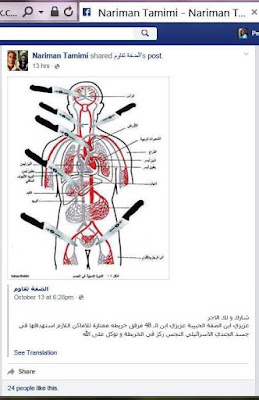German news network accuses Israel of teaching children to hate
An advertisement for a German television documentary which will deal with how children in the Palestinian Authority are taught to hate and kill has caused an uproar for claiming that Israeli children are also taught to hate and kill Palestinians.Israeli Newspaper Slammed For Hiring Editor Linked To Anti-Israel Activism
The program will be aired on ZDF, a German television channel which is known for its anti-Israel slant.
The ad for the documentary, titled "teaching to hate?" asks the question "how do Israeli and Palestinian children learn to despise one another – and kill?"
The documentary makes the comparison between incitement to murder and hatred in Palestinian schools to the education and incitement to hatred which Israeli children alleged receive. This, despite the fact that the documentary clearly and explicitly proves that the education systems which spread incitement to kill and to hate is on the Palestinian side only.
While the documentary doesn't claim that the Israeli education system teaches children to kill Arabs, it does say that Arabs are presented in a negative light in Israeli textbooks. An example of this "racist education" against the Arab population is that the majority of Israeli students, when drawing a picture of an Arab, draw the Arab sitting on a camel. (h/t Gastwirt)
Yair Lapid, a leading Israeli politician in the opposition today, strongly criticized the country’s Haaretz newspaper for hiring a new chief editor for its English language edition who is connected to Breaking The Silence, a controversial anti-Israel activist group.Islamic Spain in Middle Ages no paradise for Christians, Jews, women
In a Hebrew-language statement published on Facebook, Lapid, the leader of the centrist Yesh Atid party, noted that Noa Landau was an unfit choice. Lapid wrote “Landau, the life partner of Avner Gvaryahu, the most vocal and radical slanderer from Breaking the Silence, was appointed the editor of Haaretz’s English edition,” noting that Breaking the Silence actively seeks to delegitimize the Israel Defense Forces.
Lapid accused Haaretz — an outlet that is widely quoted by influential media outlets and international governments such as the White House, the US Congress and the European Union — of spreading lies about Israel, including that “the majority of Israeli citizens support apartheid and that Israeli soldiers slaughter Palestinian children.” Lapid noted that “[t]his is further proof (as if any were needed) that Breaking the Silence is not interested in influencing Israeli society from within, but prefers to slander us abroad.”
There is a widely held belief that in Spain, during the European Middle Ages, Islam, Christianity and Judaism co-existed peacefully and fruitfully under a tolerant and enlightened Islamic hegemony. Dario Fernandez-Morera, associate professor of Spanish and Portuguese at Northwestern University in the US, with a PhD from Harvard, has written a stunning book that upends this myth.
The myth itself has been a comforting and even inspiring story that has underpinned the so-called Toledo Principles regarding religious tolerance in our time. It has buttressed the belief that Islam was a higher civilisation than that of medieval Europe in the eighth to 12th centuries and that the destruction of this enlightened and sophisticated Andalusia should be lamented.
The great Spanish poet Federico Garcia Lorca, a century ago, saw it that way. US President Barack Obama and The Economist magazine have both very recently cited Muslim Andalusia as evidence that Islam has been a religion of peace and tolerance. In short, the myth of Andalusia has been a beacon of hope for working with Islam in today’s world with a common commitment to civilised norms.
This vision was spelled out in Maria Rosa Menocal’s The Ornament of the World: How Muslims, Jews and Christians Created a Culture of Tolerance in Medieval Spain (2002) and reinforced by David Levering Lewis’s God’s Crucible: Islam and the Making of Europe, 570-1215 (2008). But it has deep roots. Edward Gibbon, in his famous 18th-century history of the decline and fall of the Roman Empire, wrote in glowing terms of the 10th-century Umayyad caliphate in Spain as a beacon of enlightenment, learning and urban living, at a time when Europe was plunged in bigotry, ignorance and poverty.
As someone who has long taken this vision for granted, it came as a considerable shock to me to discover that the conventional wisdom is quite unfounded. In The Myth of the Andalusian Paradise, Fernandez-Morera systematically refutes the beguiling fable. The picture he draws is starkly different from the conventional one, troubling in what it reveals and compelling in its arguments.








































